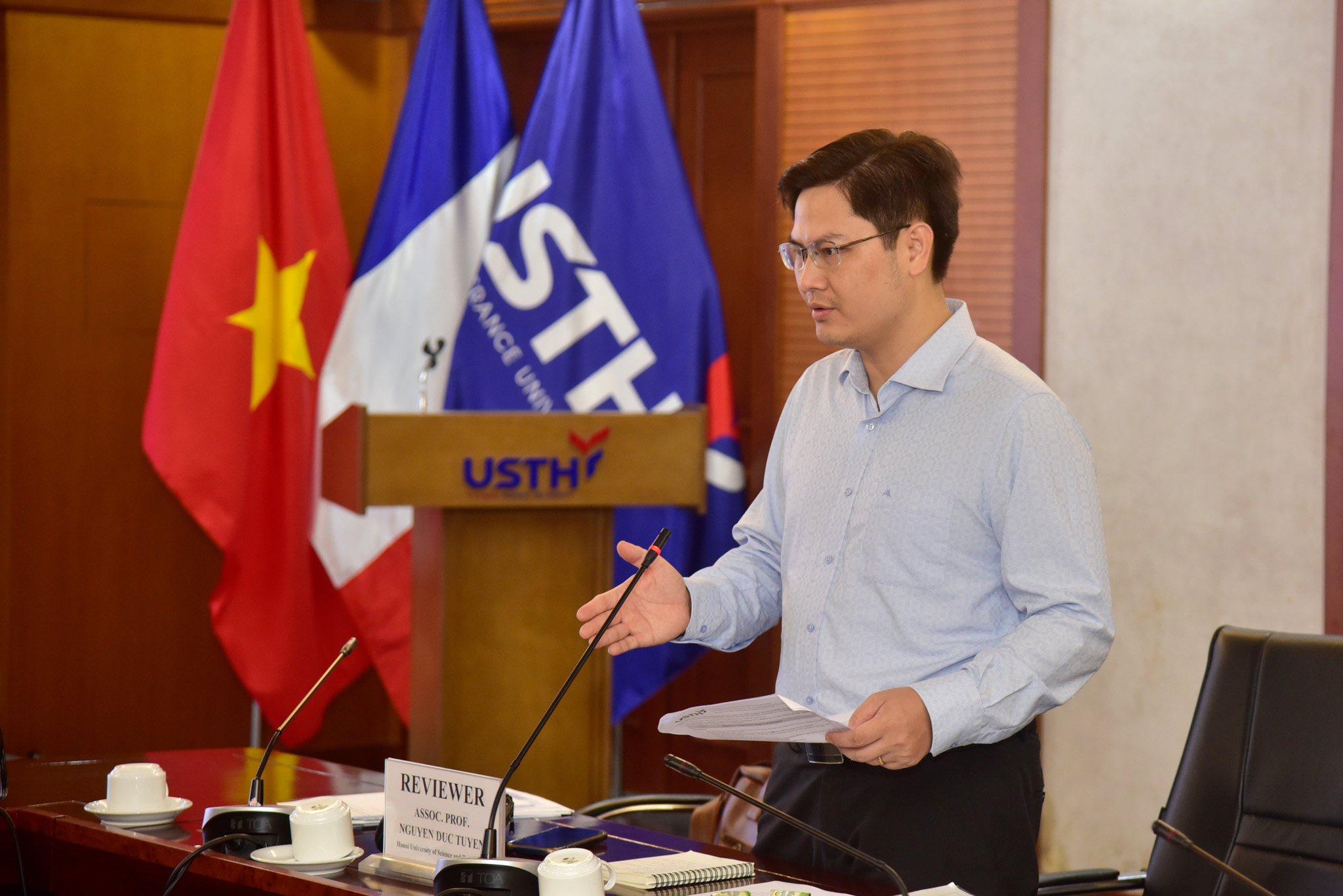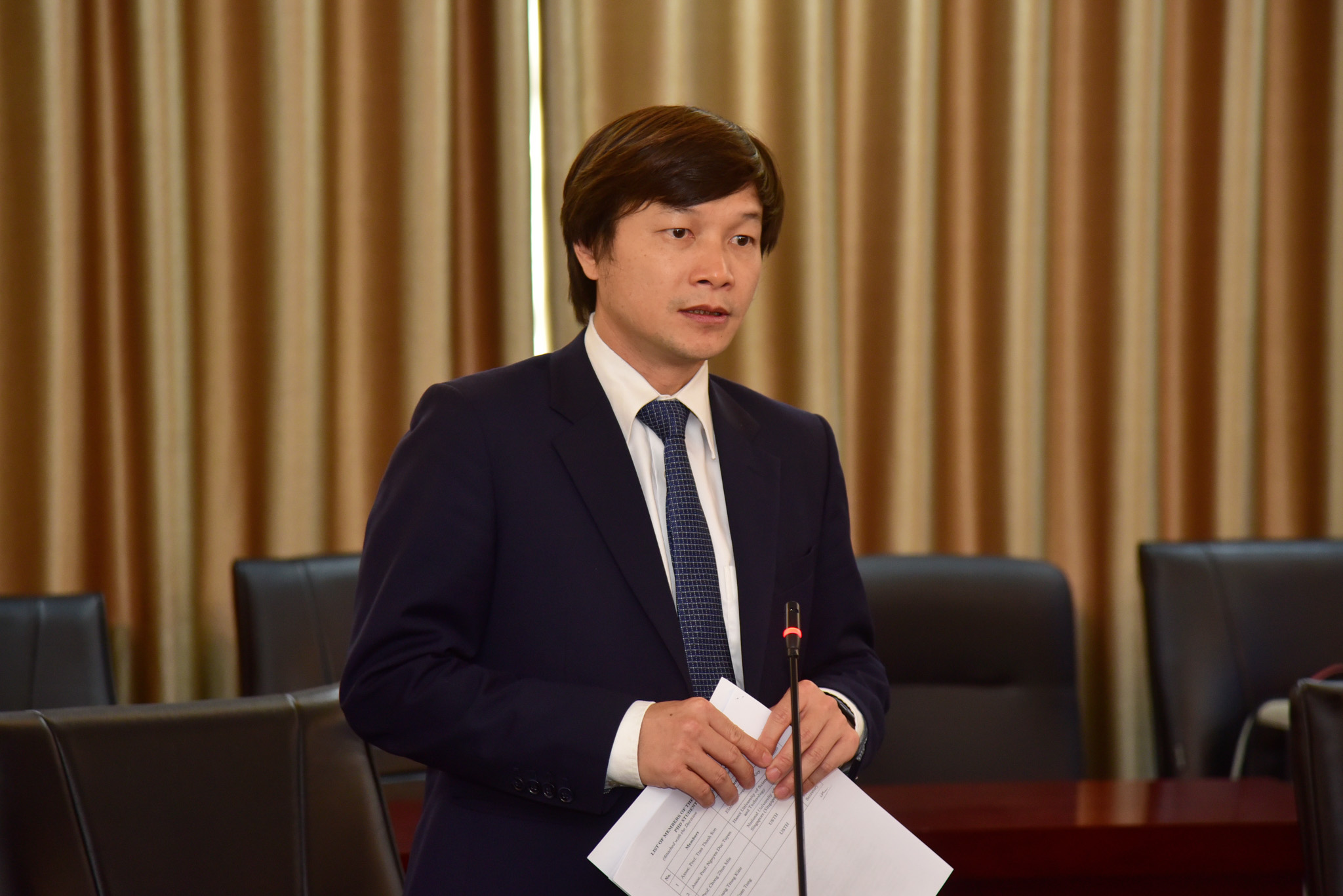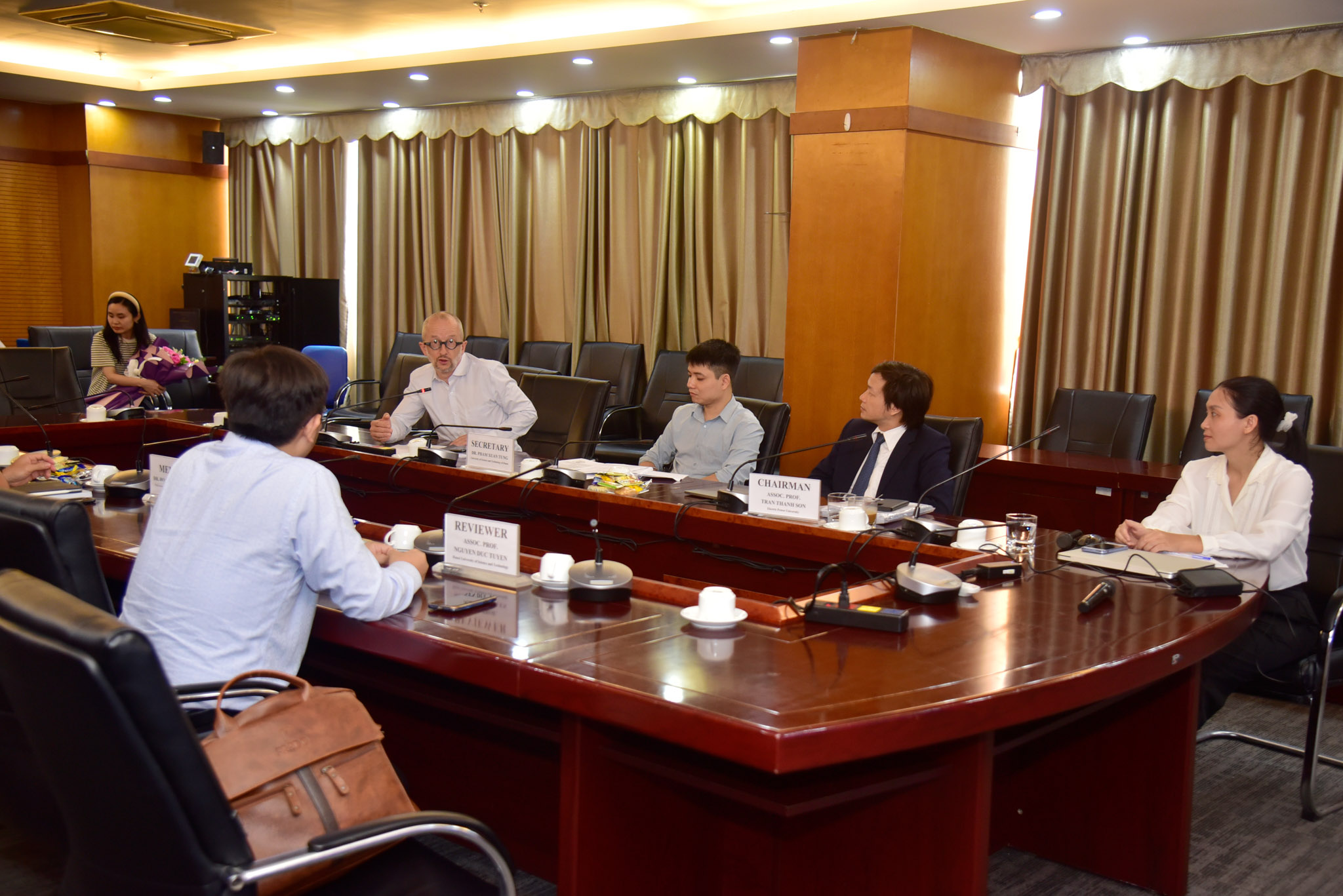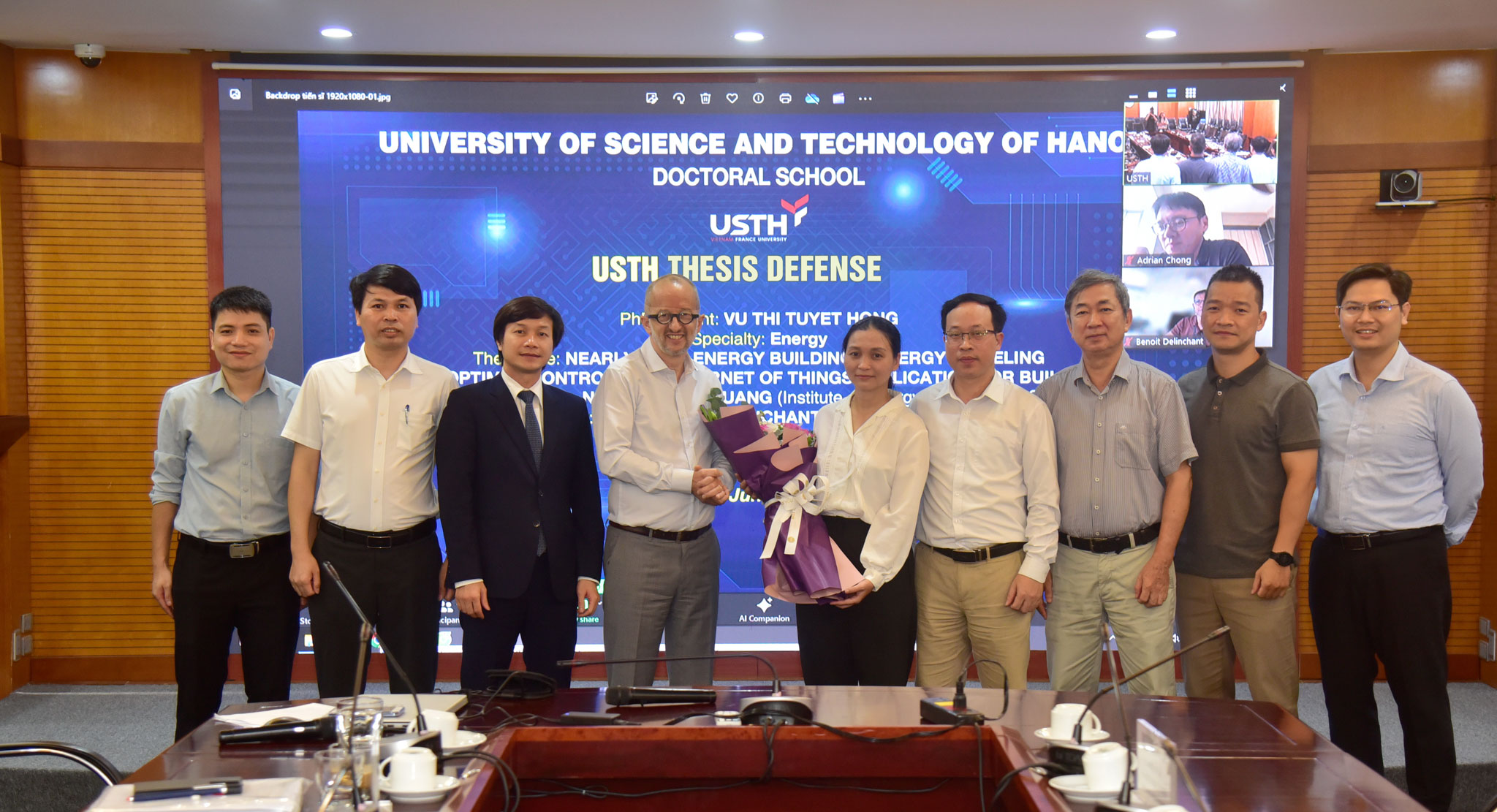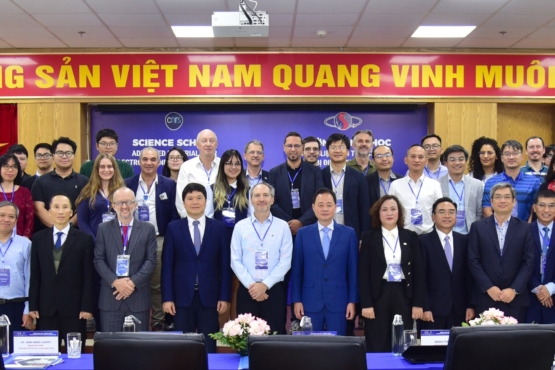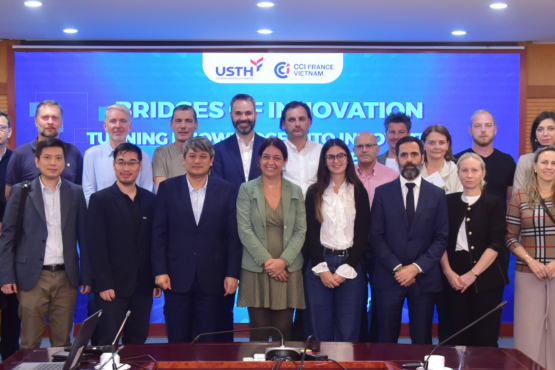On June 10, 2024, the University of Science and Technology of Hanoi (USTH) held a doctoral thesis defense for PhD student Vu Thi Hong Tuyet, majoring in Energy with the thesis title: “Towards Nearly Zero Energy Buildings: Energy modelling and optimal control with Internet of things.”
The doctoral thesis was under the supervision of Dr. Nguyen Dinh Quang – Institute of Science and Technology for Energy and Enviroment, Vietnam Academy of Science and Technology and Prof. Benoit Delinchant – Grenoble Alpes University (France).
The PhD thesis defense was attended by 5 members of the thesis jury, including:
- Assoc. Prof. Tran Thanh Son, Electric Power University, Chairman;
- Assoc. Prof. Nguyen Duc Tuyen, Hanoi University of Science and Technology, Reviewer;
- Prof. Chong Zhun Min, National University of Singapore (Singapore), Reviewer
- Dr. Hoang Trung Kien, USTH, Member;
- Dr. Pham Xuan Tung, USTH, Member, Secretary.
At the defense, PhD student Vu Thi Hong Tuyet presented the research results of her thesis to the Jury.
According to Ph.D. student Vu Thi Hong Tuyet, buildings are the most significant consumer (accounting for 34% of the world’s total final energy consumption and contributing to 37% of the world’s operational energy and process-related CO₂. emissions in 2021). The building construction sector has a high growth rate (the floor area has increased by over 23% from 2010 to the present).
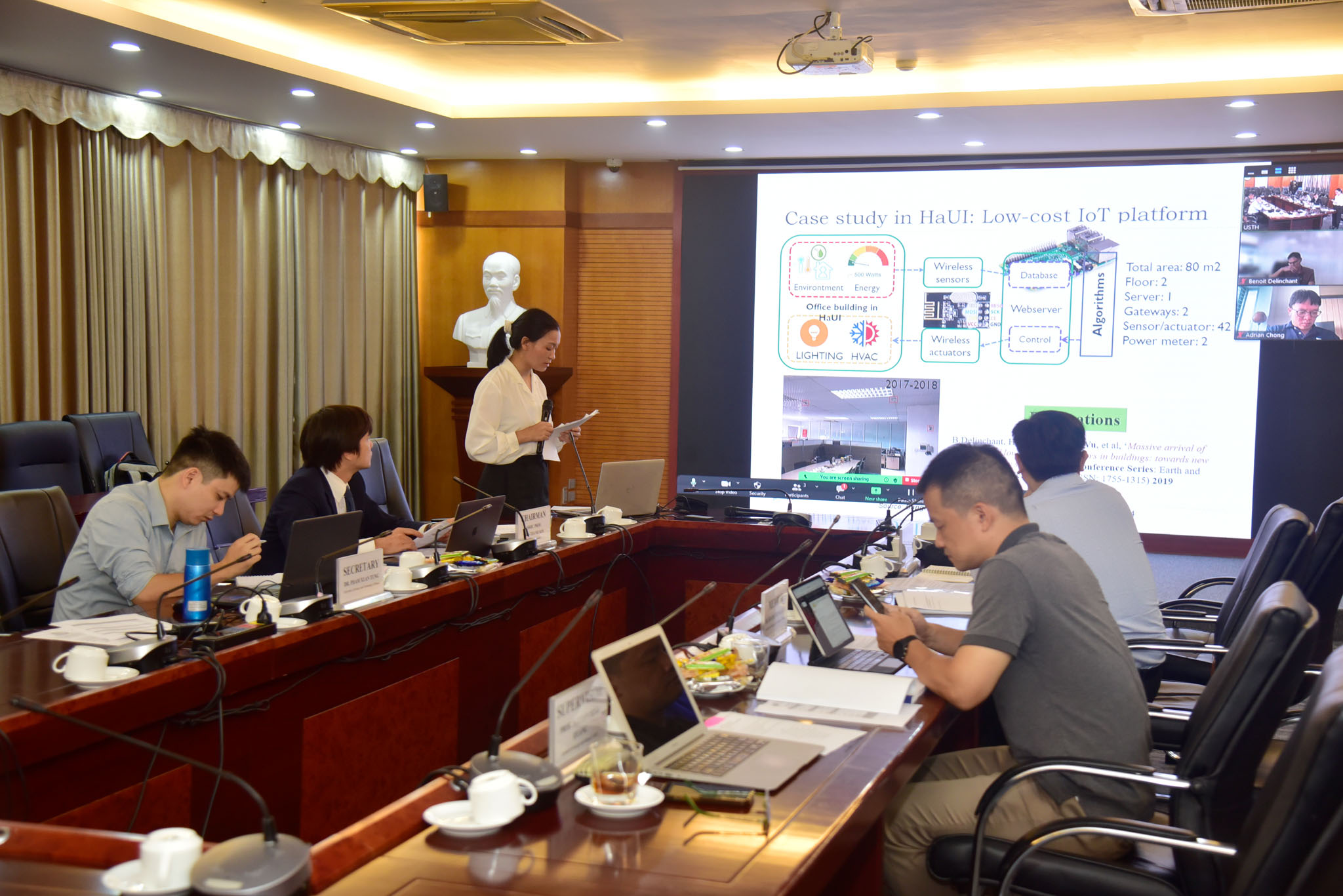
In addition, we are faced with fast population growth and a lack of energy supply. For sustainable energy development, buildings must use cost-effective methods and eco-friendly energy sources toward ‘Nearly Zero Energy Buildings’ and ‘Zero-emission Buildings’.
According to the World Bank report, Vietnam has a vast potential for solar energy. The government’s new energy policies have recently accelerated solar energy projects. In 2019-2020, the total power installation capacity of PV projects was more than 19 times that in the adjusted power plan VII.
However, the surging development of solar power projects led to some risks regarding the power system’s instability and overloading transmission grid. As a result, EVN has to cut a part of solar electricity production on the national grid, which reduces investor benefits. The lessons from European countries showed that energy efficiency management in buildings with PV systems on the roof could help overcome these challenges.
Nevertheless, controlling tasks and operating costs are still challenges when applying energy efficiency solutions. This study proposed implementing quality, low-cost IoT platforms for building energy efficiency management and shared a feasible method for using the platform for building energy studies. Energy models were calculated for simulations and experimentations.
The robustness control algorithms are applied to optimize self-consumption and electricity bills in buildings. Case studies in France and Vietnam have been carried out.
The Jury highly praised Ph.D student Vu Thi Hong Tuyet’s research outcomes, recognizing them as meaningful work with practical applications. Her work not only helps save energy and reduce operational and maintenance costs for buildings but also lessens environmental impact, thereby contributing to sustainable development goals. They discussed in a closed session and voted, resulting in 5/5 votes in favor.
Ph.D. student Vu Thi Hong Tuyet extended her most profound gratitude to Dr. Nguyen Dinh Quang and Prof. Benoit Delinchant for their unwavering guidance, to the USTH lecturers and staff for their assistance, and to her family, friends, and colleagues for their enduring support during her research journey. This encouragement significantly motivated her to defend her thesis successfully.
On behalf of the Jury, Assoc. Prof. Tran Thanh Son congratulated Ph.D. student V u Thi Hong Tuyet on her successful defense of her doctoral thesis. He also expressed his best wishes for her continued success in her future pursuits and professional career.
Photos of the event:
